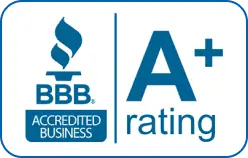During a life insurance exam, a medical professional will review an applicant’s family medical history, take vital signs, and collect blood and urine samples. In some cases, insurers may request additional tests, such as an electrocardiogram (EKG), particularly for those applying for higher amounts of life insurance coverage. The results help determine whether an applicant qualifies for a preferred rate or if certain health conditions might lead to higher premiums.
Key Takeaways of Everything You Wanted To Know About… A PARAMEDICAL EXAM
A paramedical exam includes medical history questions, basic measurements, blood pressure, pulse check, and urine collection. It takes about 20-30 minutes and is required for completing an insurance application.
A urine sample is always collected for lab testing as determined by the insurance company. Blood tests provide underwriting information, requiring a small sample (1-3 vials) with fasting possibly required.
All medical information collected is strictly confidential and used only by the insurance company for underwriting purposes.
Appointments are arranged by Portamedic at the applicant’s convenience, either at home, the office, or a designated location.
An ECG records heart activity and is painless. Staying calm and relaxed helps ensure an accurate reading.
Life Insurance Paramedical Exam
To prepare for a life insurance medical exam, applicants should follow simple steps like avoiding alcohol and nicotine, staying hydrated, and fasting if required. The insurer will also review medical records to ensure consistency with the information provided. If there are concerns, the company may request further documentation before approving the life insurance policy.
A strong exam result can lead to lower premiums, making it a crucial step for those looking to purchase life insurance. Since rates are often based on health and age, younger applicants in good health tend to secure better terms. Whether applying for term life insurance or a long-term policy, preparing for the exam can help ensure the best possible outcome.
What is a Paramedical Exam and How Long Does it Take?
A paramedical exam consists of some questions about your medical history, measurements of your height and weight, blood pressure and pulse. A urine specimen is also collected. Undressing is not required and the exam usually lasts 20 to 30 minutes. Your application for insurance is not complete until we have obtained this necessary information.
Why Will a Urine Specimen Be Collected?
A urine specimen will always be collected during a paramedical exam. The tests done are determined by the insurance company and are performed by a laboratory. The test results will be sent only to the insurance company and are used in the underwriting process.
What Happens to this Information?
All of the information obtained during the paramedical examination is strictly confidential and for insurance purposes only. It will be forwarded to the insurance company for review to help evaluate your individual policy.
How is the Appointment Made and Where?
Portamedic will call you to schedule a date, time and place convenient for you. You may elect to have the exam completed at your home or office, or many people prefer to come to our location. You make the decision to fit your schedule.
Medical Services
What qualifications are required of physicians and what services do they perform?
Sometimes a physician is required by the insurance company to perform the examination. Portamedic contracts with physicians who have a current license, are in good standing and practice in a specialty area approved by the insurance company and Portamedic. These physicians provide services such as medical exams, treadmill ECGs, X-rays, etc.
trusted by 5,000+ clients
Get Personalized Quotes Tailored to Your Company’s Needs
Blood Testing
Why is blood testing required?
Blood testing has been found to provide important information for underwriting purposes. A wide range of tests are completed by a laboratory and the results are sent only to the insurance company.
How much blood is required?
Less than one ounce of blood is drawn from a vein, into 1-3 vials, by experienced personnel. You may be required to fast from 4-12 hours depending on the requirements of the insurance company. You should advice your examiner if you have had previous problems such as fainting, nausea, are currently taking large doses of aspirin, or have difficulty clotting or bruise easily.
Can you get an Infectious Disease from this Blood Draw?
No. The sterile materials used are in disposable kits and used only once. The examiner will open the kit in front of you as well as show the seal being broken on the sterile needle.
What tests will be completed?
Each individual insurance company selects the tests they need for the underwriting procedure. Portamedic is requested only to collect and prepare blood for analysis; the insurance company gives instructions to the lab regarding specific tests. You are required to sign a consent form and a chain-of-custody form for your own protection.
Who will receive the results of your test?
The lab sends the results directly to the insurance company.
Electrocardiogram (ECG)
What is an electrocardiogram?
It is a recording of the electrical impulses associated with cardiac contraction and relaxation. The ECG does not cause any pain.
What should I expect?
You will be asked to lie down flat with your shirt unbuttoned in order to place the leads on your chest. Women must remove stockings prior to the exam.
What can I do to assist the technician to obtain a good ECG?
The best preparation is to remain calm and totally relaxed to prevent muscle interference.
Try looking at our Life Insurance Examination Checklist so you’re ready for a successful exam!
A life insurance medical exam is a routine part of the underwriting process for most policies. Life insurance companies use this evaluation to assess the overall health of life insurance applicants and determine eligibility and premium rates. This step is common when applying for term life insurance or permanent life insurance, as it provides insurers with a clearer picture of potential risks.
Conclusion and Summary of Everything You Wanted To Know About… A PARAMEDICAL EXAM
A life insurance paramedical exam is a straightforward but essential step in the insurance application process. It involves basic health assessments, including a medical history review, measurements, and lab tests, all conducted with strict confidentiality. The process is designed for convenience, allowing applicants to complete the exam at home, work, or a designated location.
Understanding what to expect, from the urine and blood tests to the ECG, helps ensure a smooth experience. By preparing in advance and staying relaxed, applicants can complete the exam efficiently, bringing them one step closer to securing their insurance coverage.














